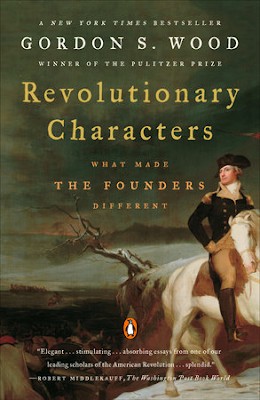The Best Books to Read Before the End: Leaving a Literary Legacy:
Literature is a monument to human expression and lasting impact in a world full of distractions and ephemeral moments. Literature becomes apparent as a meaningful tool to retain our thoughts, feelings, and wisdom when we reflect on the purpose of our existence and the legacy we leave behind. This piece takes readers on a literary tour of some of the best novels that provide inspiration, opportunity for introspection, and the possibility to leave a lasting legacy via the power of language.
Summary of Contents:
Introduction: Exploring Life's Complexities and Philosophies through Literature's Timeless Influence
Confronting mortality and embracing the inevitable while navigating love and relationships over time,
Inspiring change and self-discovery
Conclusion: Your Influence in the Pages
1. Introduction: Literature's Eternal Influence
From ancient scrolls to contemporary paperbacks, literature has influenced cultures, questioned expectations, and crossed generational boundaries. Authors have the extraordinary capacity to connect with readers of all ages through prose, poetry, or narrative, leaving behind a legacy that endures through the years.
2. Examining the Philosophies and Complexities of Life
Some works of literature explore the profound complexity of existence and existential issues. Books like Harper Lee's "To Kill a Mockingbird" and George Orwell's "1984" address societal inequalities, human nature, and the search for the truth. These books encourage readers to think about their surroundings and the impact they can have on it while also providing entertainment.
3. Understanding Love, Relationships, and Time Love, is a major literary theme that appears in all mediums and has a global appeal. Books like Jane Austen's "Pride and Prejudice" and Gabriel Garcia Marquez's "One Hundred Years of Solitude" portray the complexities of relationships, the difficulties of love, and its long-lasting impact. Authors immortalise the human experience of affection and connection via these stories.
4. Facing Death and Accepting the Inevitable
Deeply moving literary works that make readers face their own mortality and the fleeting nature of existence are motivated by the contemplation of mortality. Leo Tolstoy's "The Death of Ivan Ilyich" and Mitch Albom's "Tuesdays with Morrie" are two examples of books that explore life, death, and the legacy we leave behind. Readers receive fresh insight by connecting with these tales. a reflection on their goals and the imprint they want to leave on the world.
5. Promoting self-awareness and change
Literature has the ability to inspire change and encourage self-awareness. Paulo Coelho's "The Alchemist" and Michelle Obama's "Becoming" are good examples of this because they describe transformational and resiliency journeys. Such novels remind readers that their actions today can influence the legacy they leave behind, inspiring them to set out on their own paths of self-improvement.
Your Legacy in the Pages, part six
Literature invites us to pause, ponder, and leave a mark that endures in a world that frequently moves quickly by. Our reading habits have a lasting impression on us by influencing our viewpoints, values, and aspirations. As you flip through these amazing Think about the legacy you want to leave behind and the tales you want to tell future generations as you complete your works.
1.How Can Literature Help Me Leave a Legacy? 1. How can literature help me leave a legacy?
Through literature, you can share ideas, impressions, and insights in a way that will endure long after you are no longer here. Your written words have the power to move others, inform them, and spark thought—leaving a lasting impression.
2. Do any contemporary literature address this subject?
Absolutely. Modern literary works that address issues of mortality, legacies, and the human experience in the modern world include "The Book Thief" by Markus Zusak and "When Breath Becomes Air" by Paul Kalanithi.
3. What happens if I don't write? Can I leave now? A legacy in writing?
Certainly. It's not necessary to be a published author to leave a literary legacy. As a record of your ideas and experiences, journals, personal essays, or even letters to close friends and family can be of great value.
4. How can I select books that are consistent with the legacy I want to leave?
Look for books that have the same values, convictions, and messages as you. These books can serve as evidence of your legacy, whether they focus on philosophical issues, societal reform, or personal development.
5. From where should I begin creating my own literary legacy?
Start by reading books that speak to you and then considering their effects. Consider recording your ideas, feelings, and revelations in a journal. Eventually, you may put together a collection of your writings that best represents your legacy.









0 Comments
Please do not enter any spam link in the comment box